Manejas el cachai?
Whether you like it or not, your Spanish, as compared to other people’s Spanish, whether or not they are present, is a frequent topic of conversation in Chile. I have a friend that says that when people tell you you speak Spanish well, it means you don’t. I have not had that experience, but she’s probably right. I speak well, and sometimes people comment on my Spanish (but more often on my accent, which is slight, but evident, specifically in the pronunciation of s, j and r (but not so much rr)), but I have no reason to think that they’re being either facetious or polite. In fact, as I write this, I have just spent a week in La Serena with a friend, in Spanish without great drama, except for when we were watching the videos of people eating surstromming, because the friend is heading to Sweden for midsommar, and that is a thing, the little putrefying herrings in a can. I did finally learn the word for slimy, which is ligoso, which is handy, as previously I’d been stuck with chicloso, which means gummy, mocoso, which means snot-like, and viscoso, which as you might guess means viscous, but none of them have the well, sliminiess of slimy. Like I said, handy. I shall use it with vigor.
Speaking of using words, and your Spanish, Chilean Spanish is famous for being heavy in slang. We have random Mapundungún words, like huincha, which means measuring tape, or tape, though we have a perfectly good expression for this in Spanish, or huacho, which means bastard (as in a child), or a single (as in a sock), not to be confused with huachita, which is a term of endearment. There is also coa, or jailhouse slang, and from this we get words for the various money denominations, gamba is 100 pesos and quina is 500, and luka is 1,000, and also the word for the jail itself, which is la cana, which leads to expansion to things like “se fue a Canadá,” when the person in question did not, actually go to Canada, but is in fact, in jail. Which is pretty funny when your friends actually do go to Canada, but I digress (surprise!)
And there are expressions, oh! there are expressions. I have dictionaries full of expressions and a brain full as well. Del chincol al jote, from a to z (or sparrow to buzzard), meaning the gamut, without any specific criteria. This was another gain from this weekend. A word to the wise, you do have to look at the source of your slang, to know how urban or rural it is, or how old-timey. I have several friends from “regiones” (from outside of the metropolitan region) who have a veritable quiver of country expressions, like “se me fue en collera,” meaning, it all went to crap, or got out of control, but is actually rodeo talk, for when that pesky calf gets away. Igual se entiende. People will understand you. But it’s still a little weird, like calling jeans dungarees.
I don’t know if Chilean Spanish has more slang than other Spanish. Perhaps it does. As I tried to explain to my friend the (admittedly) ridiculous expression in English that is also related to draft animals, “I don’t have a horse in that race.” It doesn’t matter to me at all if Chilean Spanish is more or less slangy or intelligible than other kinds of Spanish. I trust in the human animal to develop words and expressions and ways of expressing ourselves, on matter what the method of communication or language we share. Go evolution.
But back to Chilean Spanish, and how well you speak it. When it is revealed that you speak Spanish (well, or at beginner level, or in between), the conversation then turns to whether or not you understand Chilenismos. Some of which are admittedly unrelated to the very thing they mean to express, like how “matar la gallina” means “to have sex,” or not something you’d have thought of before, like “aburrido como ostra,” which means “as bored as an oyster.” To be fair, English expressions win no prizes either, and in the freshness department, Spanish beats English with “fresquita como lechuga,” over “fresh as a daisy.” Lettuce being more indicative of freshness than daisies, at least the way I see it.
And yet the public test of whether or not you understand Chilenismos is unrelated to any of these expressions. You don’t get credit for understanding (or saying), “tengo pa rato” (I have to wait/do this for a long time before it ends), or saying, “me comí el medio sandwich,” where, almost inexplicably, that means you ate a giant sandwich, despite the fact that medio would seem to mean (and sometimes does mean) half.
No.
The thing everyone wants to know is whether you understand the word “cachai,” and implement the semi-nonword/verbal tic “po.”
Cachai comes from cachar, an imported verb that has come to mean “get it/understand/realize.” Chileans will try to tell you that it comes from the English “to catch,” but I personally, with some years of English-speaking under my belt, would say that cachar is more similar to “to get,” than to catch, except in the expressions “I didn’t quite catch that,” and “Did you catch that?” which is more about hearing than understanding anyway. It acts mainly as “get it?” or “you know?”
The uses of cachai are numerous. It acts as a tag question “No quiero ir, cachai?” I don’t want to go, you know? Or so signal something important, “Cacha la wea!” Check this out (usually something yet to be told). wea and huevón etc will have to be for a later entry, or search around, and you’ll find plenty of exposition). No caché means “Oh, I didn’t understand, or I didn’t notice that.” No había cachado? I hadn’t noticed.
Cachar is also one of the very first expressions that you hear when you move to Chile, as people are constantly checking in with you both as a person and a foreigner, to see if you “get it.” I would say it was probably at day .5 (not 5, but 0.5, as in about 8 hours in) when I started to notice el “cachai,” and since it occupies the same place in the language as “you know?” or “get it?” or “understand?” it was a) almost impossible not to assimilate immediately and b) very evident what it means, and how to use it.
Po is also very simple. It follows both yes and no nicely “Sí po” or “sipo,” and No po (which almost never appears as nopo). Again, not grammatically stymie-ing, just a little tic, like saying “Yep” and “Nope” instead of “yes” and “no.” Po also acts as a bit of verbal punctuation, and often comes at the end of a sentence, perhaps when you don’t want to say “y’know?” but want to give a little punch to what you said. “No quiero ir, po.” is more “I really don’t want to go.” than just “I don’t want to go.” Again, a first-order Chilenismo, the kind of thing you notice after about 5 minutes of talking to a Chilean. You do not have to be taught these things, they just seep in, like whatever slang all the hip kids use in the US these days (which I have no idea about for a generation and several thousand kilometers worth of reasons).
So why do people ask, when trying to evaluate how well you have assimilated Chilean Spanish into your world, whether you understand (or use) cachai and po? It’s an extraordinarily low bar, like asking someone in English if they got it when you said “you know,” or “um.”
It would be easy enough to build a test consisting of a complex sentence filled with truncations, slang, expressions, and using the rule-bending conjugation that doesn’t exist (except it does), that turns the 2nd person singular ending for cachar into -ai, instead of -as as it should be. FWIW, not just cachar, also andar as in “dónde andai?” for where are you going, and pretty much every other verb (but ojo, the ending for -er and -ir verbs is just -i as in no te preocupí for don’t worry..
And yet (in my experience) nobody does this with the complex convoluted sentence of impenetrable Chilenismos. Everyone asks you this incredibly low-bar question about cachai and po. For a long time I thought it was because they didn’t know that those things about Chilean Spanish are incredibly easy to absorb, and couldn’t figure out how to ask something more complex, or didn’t even know what that more complex thing would be. But coupled with the “you speak good Spanish,” comment, applied to people whose Spanish, by most metrics is, in fact, not particularly good, I have come to a different conclusion.
Rather than a real test, I think it is a way to include, rather than exclude you. By asking you something simple and silly, your answer is likely to be in the positive, “yes, I get that!” and “Yes, I know how to use that,” both of which build community, like asking people if they think the south of Chile is pretty or if they like the beach. It also serves as a way for Chileans to establish that they feel there is something special about them, something unique, worth noticing, such that if you mixed a room full of Spanish-speakers together, Chileans would still be easily identified, and perhaps most importantly, would be able to identify each other. And you too, if you can use these two words like a pro.
Cachai?
***I do not doubt that every single one of my friends and everyone I’ve ever met in Chile could put together a sentence I wouldn’t understand, or that only a longtime resident of Chile with constant slang immersion might understand. That is why this question about whether I understand low-order Chilean Spanish words was so baffling to me.

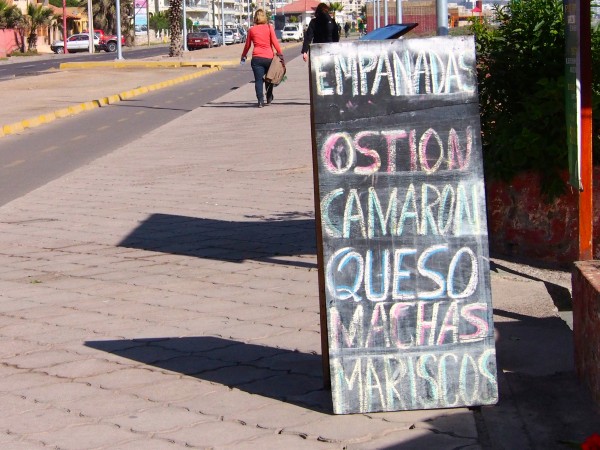
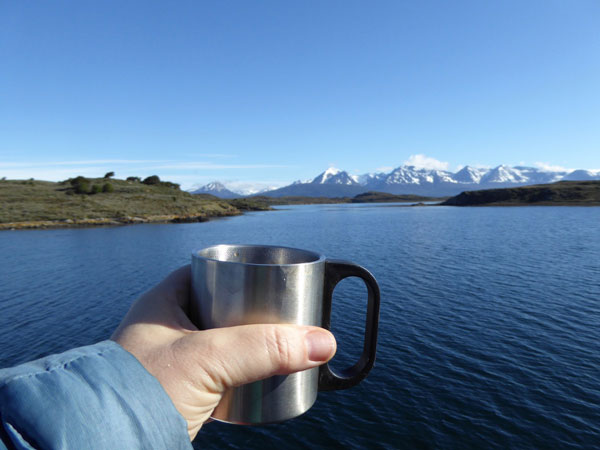
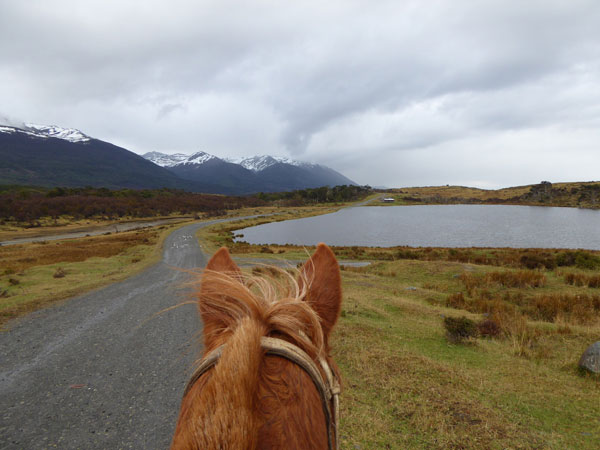

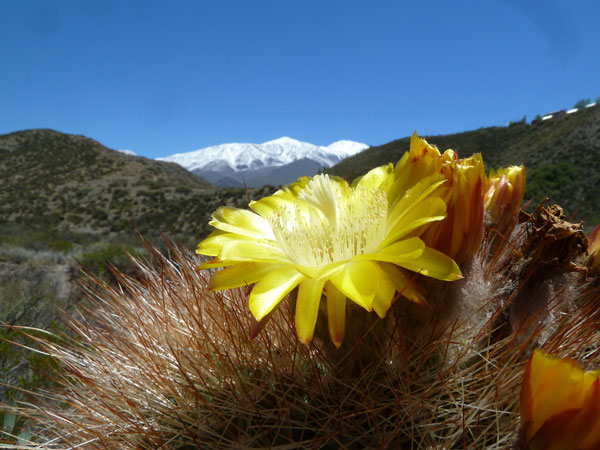


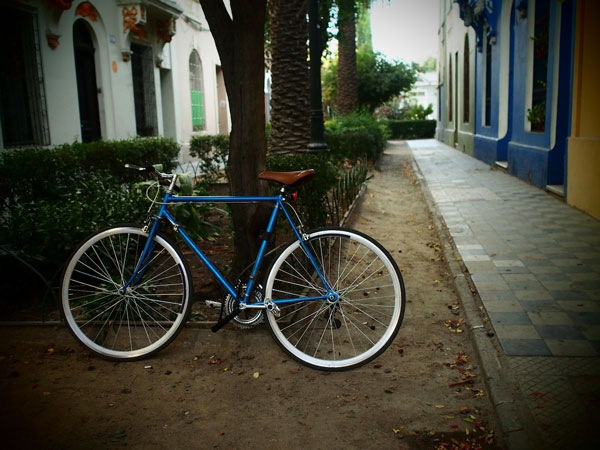


Yes, I get this question a lot too, odd after you have had a full-on conversation and they are just noticing that you might not be chilean
…and then they ask you if you have eaten cazuela.
and cue… laughter. I think they really are trying to build community, otherwise the questions would be harder. But it does feel a bit like no one is paying any attention to you at all when they ask if you have ever heard of the word cachai, and every fourth word in your whole conversation has been Chilean slang. For the uninitiated, this is like asking if someone has eaten chicken soup.
I tend to take it as sincere when the “you speak Spanish well” comes up as a remark out of surprise. However if it’s something that gets peppered in after you have been speaking with someone awhile I would tend to agree with your friends.
I am not one hundred percent sure it is purely Chilean, but I am in love with the colloquial use of “pescar”. Seems like a basic chilenismo as well, I hear it all the time.
I love “pescar” too, Gitte! I don’t know what to think. I usually just say thank you and move on. It seems self-aggrandizing to ask in greater detail why someone has said that. And I don’t like the part where it also sometimes includes put downs of other people’s Spanish. I figure people are speaking to the best of their ability, so in the end, it’s more about talent than effort, after a point.
I love your conclusion that it’s about being inclusive and building community. Do you think it’s conscious or unconscious on the asker’s part? So often language differences can be made and emphasized to stress differences and not belonging and the impossibility of ever being able to belong (or it can sure be perceived that way by the outsider), so it’s a nice thought that regional differences are also used to pull outsiders in and give them a little morale boost 🙂
Luca for 1,000 and cana for jail (as well as en Canadá and other variants) are also used in Colombia! The RAE says Uruguay, Argentina and Colombia for luca- I guess they’re out of the loop. And Argentina, Bolivia, Chile, Colombia, Peru and Uruguay for cana.
My very subjective impression is that Chilean Spanish is very slang-happy. And even if it doesn’t have more slang words and expressions than most other countries (though I’ve always thought it did), then at least that slang is much more prevalent and standard.
yay! you know I love it when you comment, Katie! I don’t know if it’s intentionally inclusive, but I would say that in general, if a person has a reason to be in your group, you would try to out of your way to not make them uncomfortable in Chile. I think. Maybe I was just feeling charitable. Also, there are other issues at play here. A gringo will be told they’re “practically Chilean” after a few years, in a way that a Colombian or Peruvian or Bolivian wouldn’t. So it’s selective inclusivity, if you ask me.
Luka I had heard in Argentina for 1,000, but mango as well (though research now tells me mango is one peso, curious). Also, you don’t talk about 1,000 pesos argentinos as readily as you do pesos chilenos, since they’re not worth so much here! Luka is kind of a standard measure here. We say palo for a million pesos, but I hadn’t checked to see if anyone else says that, too. I have heard that the coa-lunfardo overlap comes from people being imprisoned in the other country, (chile to argentina and back), but I have no way of knowing if that is true! Though it would seem to make sense. Have you seen “Las Nueve Reinas?” I saw a bunch of Chile-Argentina overlap in that movie re: slang.
And yes, Chile is slang-happy, and Chileans complain about it all the time, about how impenetrable their Spanish is, but I think they might secretly be gloating.
Glad to “see” you here!
Po comes from pues. No pues = no po. Si pues= si po.
I would argue that while it comes from pues, it exists in environments where pues does not, and does not exist in places where pues does. For example, you can start a sentence with pues. Pues, no quiero comer. But you cannot say *Po, no quiero comer. So maybe it comes from, but it does not act the same.
De allá viene… por eso los chilenos pobres decimos po, en el campo chileno es pueh, los peruanos dicen pe, los bolivianos puis, y hasta los mexicanos pobres dicen puis…
de acuerdo, pero no cumple exactamente la misma función, como decía mas arriba. Especificamente, no puedes empezar una frase con po, tal como se puede con pues. De allá viene, pero algo se le cambió en el camino. En todo caso, corrobora lo que decía, que es una cosa extremadamente simple para servir de “prueba” para averiguar si hablas o no hablas chilensis. En mi caso, a veces sí, a veces quizás no.
Estimada, en este caso aunque un chileno deseara usar el pues, no lo usaría como lo planteas (pues, no quiero comer), acá se usa la negación seguido de un pues y luego se reafirma con otro no, del siguiente modo: “no pues, no quiero comer” y en ese caso sí que se puede decir “no po, no quiero comer”, incluso lo puedes enfatizar así: “no po, no quiero comer po”.
In 2013 during the european winter I was in the mountains in Italy in a very beautiful region called Trentino in the beautiful town of Cavalese. To my surprise I heard tve expression “cacciai” a lot. I couldn’t resist and I asked arou d thinking that they might be chileans but now they were all italians. So Iasked about the use of cacciai and they told me that is a commo and omd expression from the north of Italy, it comes from cacciare “to hunt” and is used in the same way as cachai in Chile.
It might be the biggest coincidence in the world but given that many italians immigrated to Chile from the north of Italy…
huh! that makes sense the cacciai. Could be where cachai comes from. There certainly was more Italian than US contact historically in Chile. Plus we just don’t really use “catch” that frequently. I just google n-grammed it, and find that it arose for the first time in print shortly before 1880, but started really taking off in the 1960s. Were they using it like we use cachai? Now you have me wondering when the extra vos-like conjugation started in Chile!
Well, I’m not an expert and I was there only 4 days. But to me it sounds like they use it the same way as in mafia movies when saying “capisci?”. So the usage is similar at least.
Everybody doing fine here 🙂
My android phone corrected a lot of words. Tve=the
commo and omd=common and old
arou d =around
my brain corrected them too, Carlos. I didn’t even notice. Hope your family is doing well!
hey you are great .. I love you page.. If you need help with certain things and explain some culture of Chilean people . please tell me .. aloha
awww,thanks. Thanks for commenting. I don’t actually know if there are still bagels in viña, but a new bagel café opened near Tobalaba in SCL if you’re around!
I completely agree on your definition of po and the change in meaning it conveys. In the future, I’ll use your writing to explain it to any gringos I talk to <3 You are a keen observer of our weird Spanish.
and I love your blog, btw. I discovered it today and it's beautiful. It's fantastic to learn what a foreigner (well, you are as chilena as any of us now) observes and perceives of our culture.
How sweet, Sebastián, happy to have you along. Still not chilena though! 🙂
This particular part of the Chilean Spanish is something I always found funny. To this very day if I’m speaking with another Chilean and they end a sentence with cachai, I’m always answering “cacho”. It a breaks the ice nicely 😉
This particular part of the Chilean Spanish is something I’ve always found funny. To this very day if I’m spaking with another Chilean and they end a sentence with “cachai”, I can’t help but answering “cacho”. It breaks the ice nicely, but I do get strange looks sometimes 😉